As part of our ongoing series sharing COVID-19 response updates from Rise Up Leaders around the globe, Rise Up Leaders in Africa discuss the effects of the pandemic on their communities and their work to advance gender equity.
By Rahwa Hassen, Program Associate
The COVID-19 pandemic threatens to unwind decades of progress made on the economic, social, and development front in Africa. After booming economic growth across the continent, Africa could face its first economic recession in 25 years. The indirect impacts are already being felt, including lack of medical supplies, loss of livelihoods, growing food insecurity, a sudden increase in out-of-school children along with inequitable access to supplementary education, and a rise in political insecurity.
Women and girls across the African continent and around the world face particular vulnerabilities in this pandemic, including: drastic increases in domestic and sexual violence, an increase in child marriages and teenage pregnancies due to school closures with further exacerbated gender gaps in education predicted to rise, and the double burden of female healthcare workers as direct caretakers on the frontlines and at home. Despite these overwhelming issues, the pandemic has also showcased how innovative and people-centered Africans are. From $1 testing kits and 3D printed ventilators in Senegal to robots in Rwanda that share prevention messages and help screen people for COVID-19, African countries and their populations are using their creativity and lessons learned from previous epidemics to actively combat the virus.
As Melinda Gates recently noted in an article for Foreign Affairs, “If policymakers ignore the ways that the disease and its impacts are affecting men and women differently, they risk prolonging the crisis and slowing economic recovery. But if they use this emergency as an opportunity to replace old systems with new and better ones, countries can build back more prosperous, more prepared, and more equal.”
Across Ethiopia, Kenya, Liberia, Malawi, Nigeria, Rwanda, and South Africa, Rise Up Leaders are working hard to ensure the voices and wellbeing of women, girls, and youth are not left out of the COVID-19 conversation, that their rights continue to be protected, and the world emerges from this pandemic more just and equal. We are excited to feature some of their work below!
Leader responses have been edited for length and clarity.
ETHIOPIA
Yidnekachew Mogessie
Physician and Sexual and Reproductive Health and Rights Advocate
Rise Up Leader since 2019 (YCI)
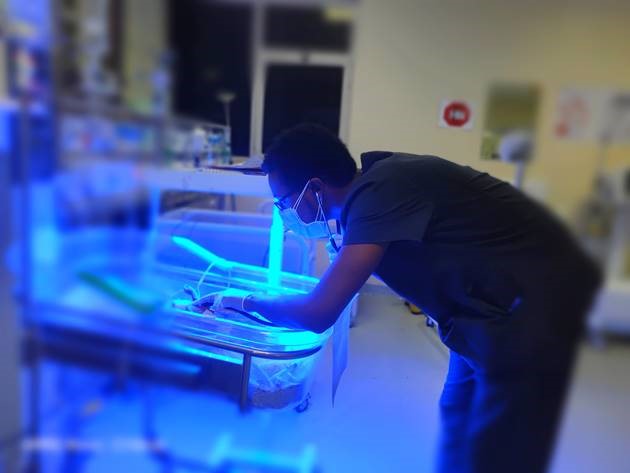
Photo provided by Rise Up Leader Yidnekachew Mogessie
“The World Health Organization identified services related to reproductive health, including care during pregnancy and childbirth, as essential health services during the COVID-19 pandemic. Despite this guidance, many young mothers tend to give birth at home due to fear of contracting COVID-19 in health institutions. This results in different maternal and neonatal complications. I’m currently working in the neonatal intensive care unit and admissions have been rising due to the increase in home deliveries since the outbreak.”
Selamawit I. Mersha
Livelihood Specialist, Save the Children Ethiopia
Rise Up Leader since 2019 (YCI)
“As the pandemic forced people to social distance and self-isolate, most people in my community are staying indoors, which has resulted in making women vulnerable to domestic violence by their partners and other close relatives.”
“I have used my advocacy skills to make government officials more aware that the pandemic will make women and girls vulnerable to domestic violence and early marriage. Due to our advocacy, the government is taking into consideration the need for legal protection from domestic violence and child marriage in the state of emergency.”
Bersabeh Mekasha Kassaye
General Practitioner, Department of Surgery, Debre Markos University
Rise Up Leader since 2019 (YCI)
“People of my community have suffered much during this time. COVID-19’s collateral damage has been especially rough on girls of my community; the economic and the social impacts are dire for them.”
Mahlet Alemayehu
Physician and Co-founder, Mandela Ethiopia Doctors
Rise Up Leader since 2019 (YCI)
“Ethiopia has made significant progress in sexual and reproductive health and rights (SRHR) within the past years, but I am worried that due to the pandemic we might face a backlash.”
“I am currently working on developing accessible SRHR information for youth with visual impairment through a grant I received as a Rise Up Youth Champion. I am developing a Braille and audio SRHR dictionary. Working directly with the youth has been challenging due to COVID-19, but the development of the SRHR dictionary is progressing very well.”
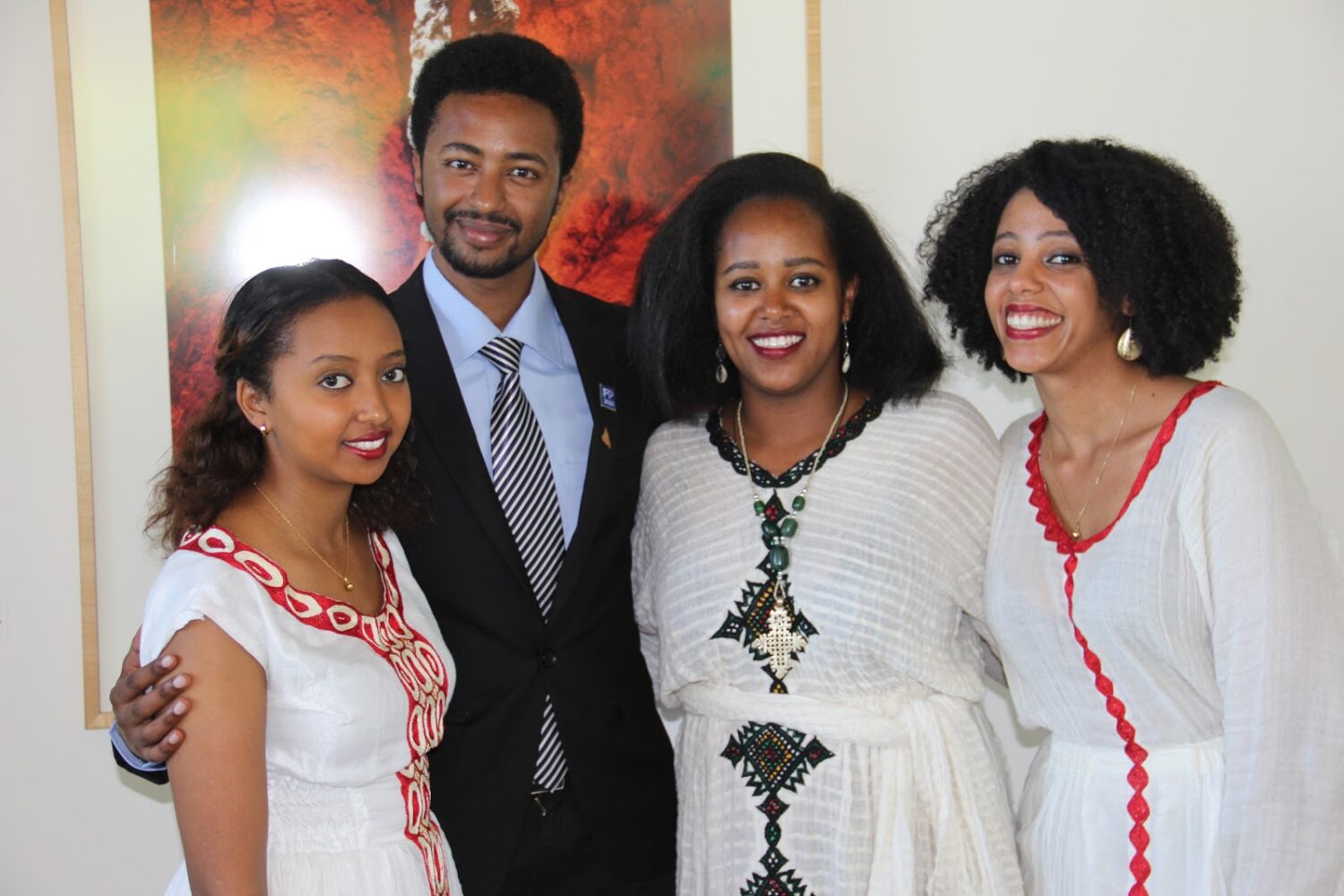
From left: Rise Up Leaders Bersabeh, Yidnekachew, Selamawit, and Mahlet during Rise Up’s Youth Champions Incubator in 2019
KENYA
Thadius Olum
Director, Zwara Arts & Theatre Society
Rise Up Leader since 2016
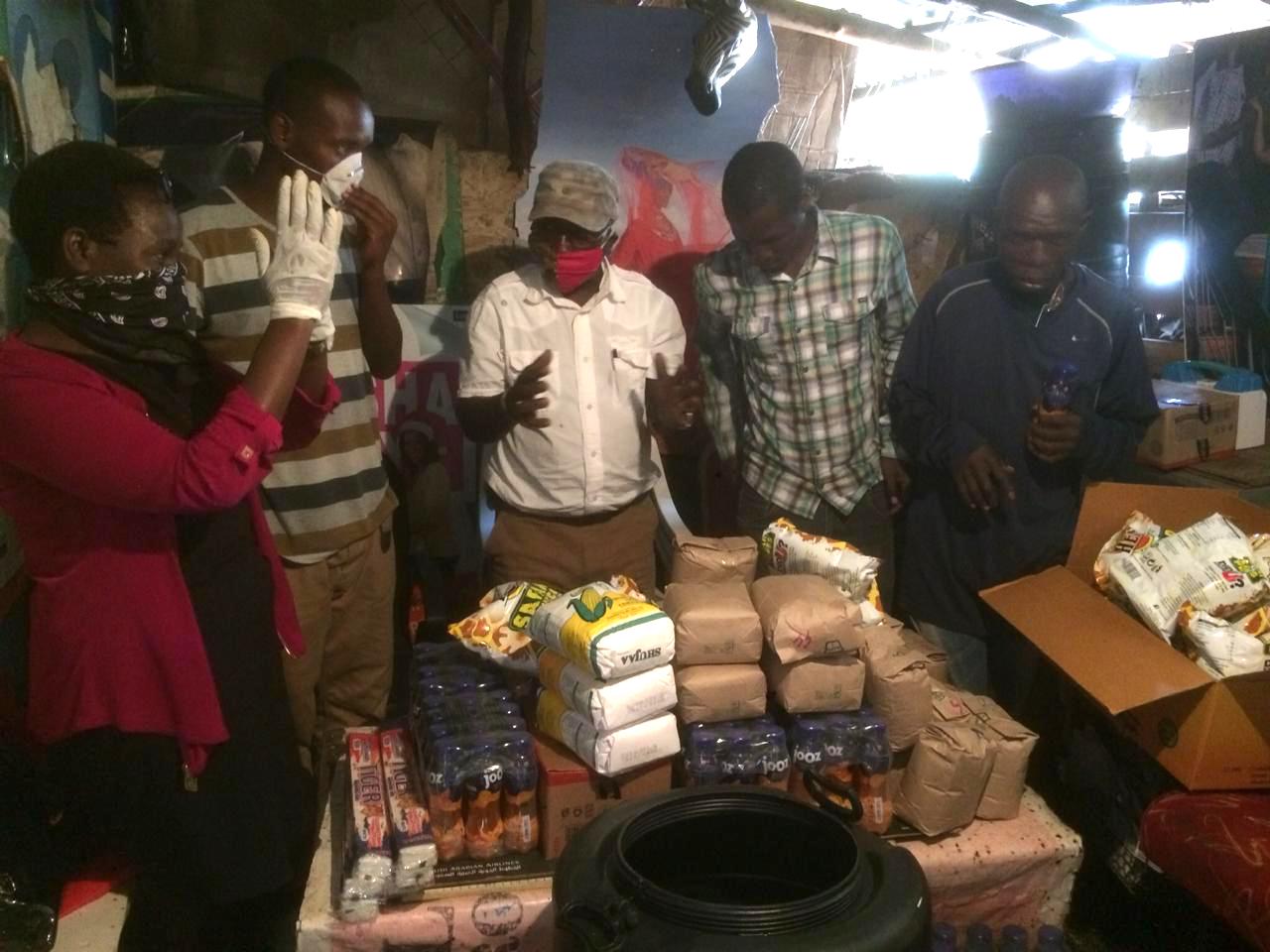
Photo of Zwara’s relief work provided by Rise Up Leader Thadius Olum
“We are trying to reach out to youth through social media and we have created a mental health champion group to help youth adopt coping mechanisms during this period…We are also integrating efforts with other partners to reach families on the street to at least help them cope during this time. We have managed to write letters to the National Youth Council to secure help for families on the street including masks, sanitizers, and food, since they have no one to turn to.”
MALAWI
Austin Kunsida
Communication Officer, Environmental Concerned Youth Association (ECOYA)
Rise Up Leader since 2018
“My work as a Rise Up ENGAGE Leader has catapulted me to the top of my profession and I’m currently the chairperson for Blantyre Urban Youth Network. As such I’ve been privileged to be at the forefront of coming up with innovative ideas on how to mitigate the challenges the pandemic has caused. On a national level, we have seen the need for a mass communication initiative to make sure youths and the general populace understand and help manage the pandemic. The main objective is to find ways to directly reach the large population of youths about preventative measures of COVID-19 through radio talk shows, public address systems, and strategic distribution of authentic information from relevant authorities such as the Ministry of Health and World Health Organization.”
Caroline Kachilika
Program Manager, Reflecting Foundation/Greenlight Foundation
Rise Up Leader since 2018
“All development work is just stuck. While all the stakeholders are concentrating on COVID-19, women are not able to support their households due to lack of income and many parents are worried that more girls will get married during this period.”
NIGERIA
Yusha’u Muhammad Abubakar
Founder/Executive Director, Enhancing Community Action for Peace and Better Health Initiatives (e-CAPH)
Rise Up Leader since 2018

“Although we have minimal resources available, we are exploring the use of modern technologies to continue with our work. We are taking advantage of social media to create information and reach out to as many people as possible. We are also creating online means of data collection on domestic violence in our community; although it is challenging, we are adopting and getting familiar with the process.
While I believe the pandemic has negatively impacted my work, I want people to know that I did not lose hope; the pandemic gives me the opportunity to create other means to be able to continue with my work.”
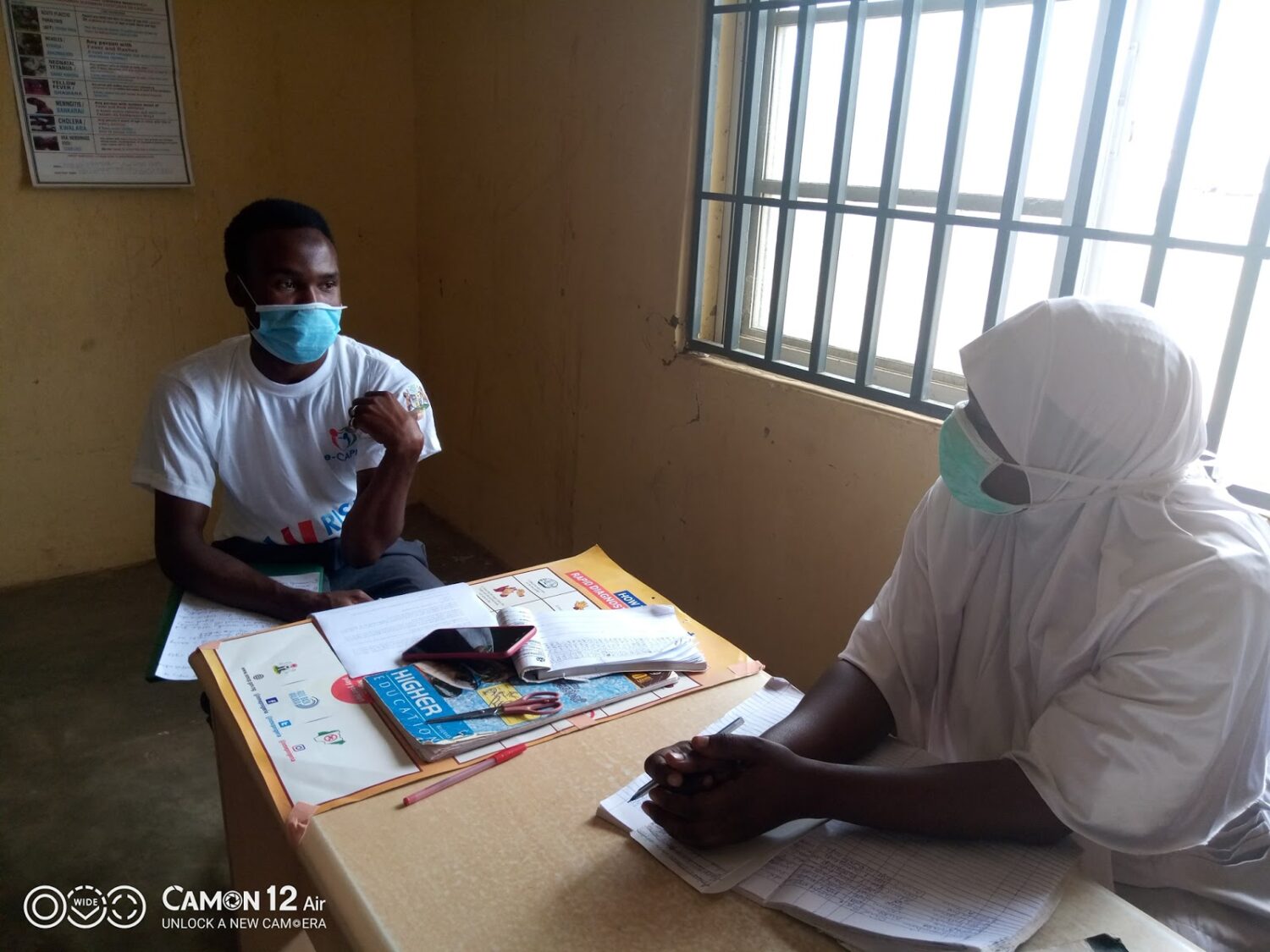
A recent gender-based violence prevention training conducted by eCAPH in Rigasa, Nigeria. Photos courtesy of eCAPH.
Francesca Adeola Olusola
Program Manager, Action Health Incorporated
Rise Up Leader since 2014
“As an individual, the pandemic has taught me to seek out creative ways to reach out to girls and women even when I cannot physically reach them. It has emphasized the importance of partnership and collaboration and expanding the scope of services offered to reach more people. It has taught me resilience and the need to keep going.”
Damilola Elizabeth Aboluwarin
Project Officer, Health Matters Incorporated
Rise Up Leader since 2018
“Most of the women and girls that we work with are workers in the informal sector (daily wage earners and small business owners). This category of women and girls has endured hunger while staying at home because their sources of earning have been suspended. The aftereffect of this is that many of these women, especially single mothers and widows may find it difficult to run the small business without support, and the ripple effect may affect their children’s education.
The Nigerian government needs to provide adequate palliative measures to care for the needs of poor people and people in need. Many people are ready to risk coronavirus infection for their daily earnings. The extended lockdown is putting a lot of stress on individuals and families.”
Tolulope Favour Aderibigbe
Program Officer, Centre for Women’s Health and Information (CEWHIN)
Rise Up Leader since 2018
“There is the fear that community transmission of COVID-19 will be disastrous in Nigeria because of the weak health facilities and structures in place. It is therefore important for advocacy interventions in the country to focus on revitalizing the health system in Nigeria to meet world standards, as no one can really envisage what could happen with regards to the present and future pandemic disasters.
“CEWHIN is raising awareness about the reality of COVID-19 and how to stop the spread. This is done through the production of jingles in the local dialect, and by working with the media to get the message to the people.”
SOUTH AFRICA
Nqabakazi Mathe
South Africa, Director, Pietermaritzburg Agency for Community Social Action (PACSA)
Rise Up Leader since 2020
“During the pandemic, the ‘forgotten’ people and the poor have become a priority to the government, with interventions being made to reach out to them. It had to take a global crisis to prioritize resources for the poor. Still, a number of promised government interventions did not reach people.”
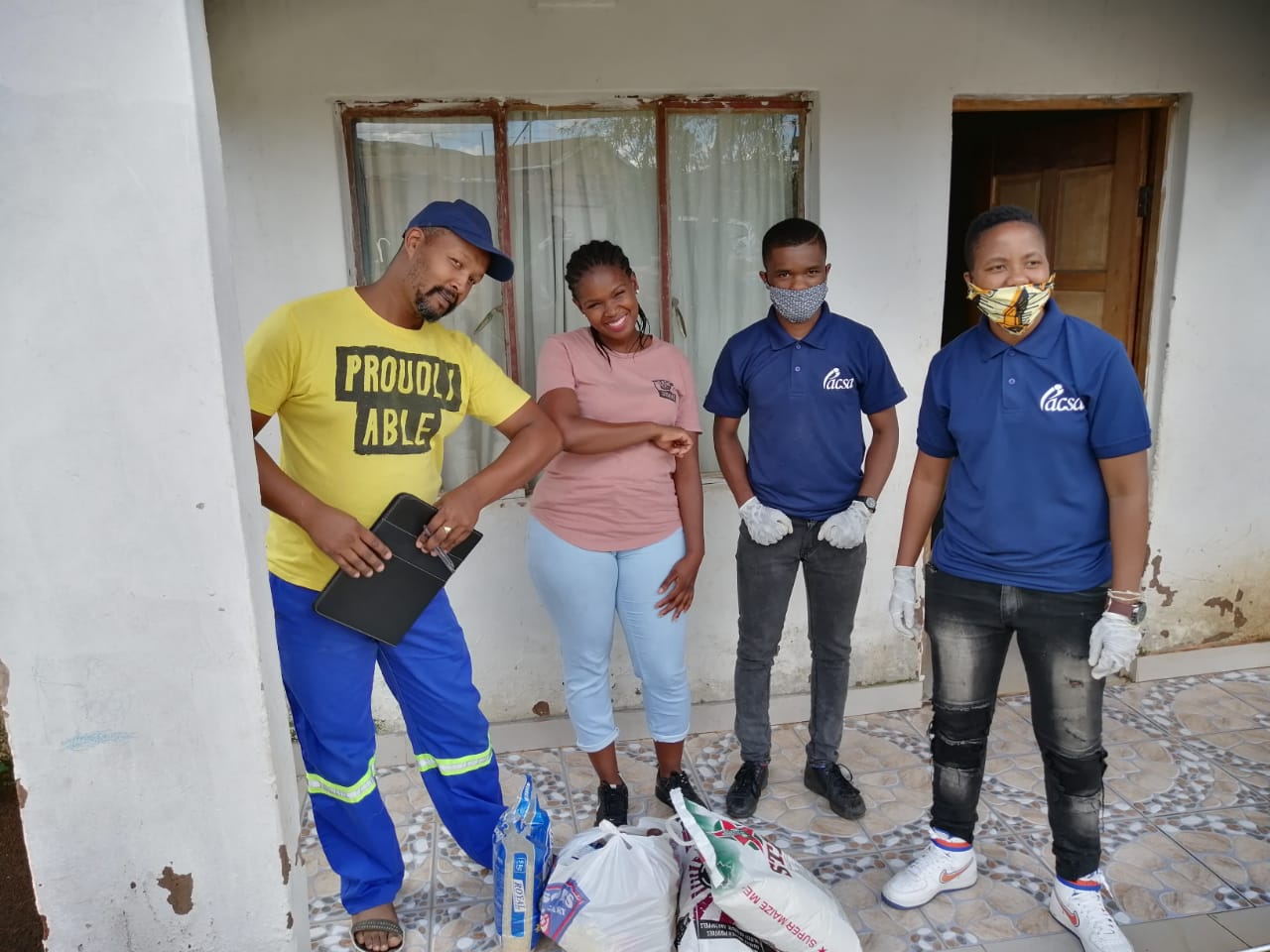
“We partnered with CREATE, an organization that supports people with disabilities, to collect food items from local houses in April. Teams collected food across townships, Pietermaritzburg CBD, and suburbs. We also received cash donations which we used to buy food parcels. We secured cars and vans to distribute the parcels and reached out using social media and bulk emails to various NGOs for additional support. After sharing photos of the families we reached with the food parcels, a number of calls flocked in from people requesting food parcels.”
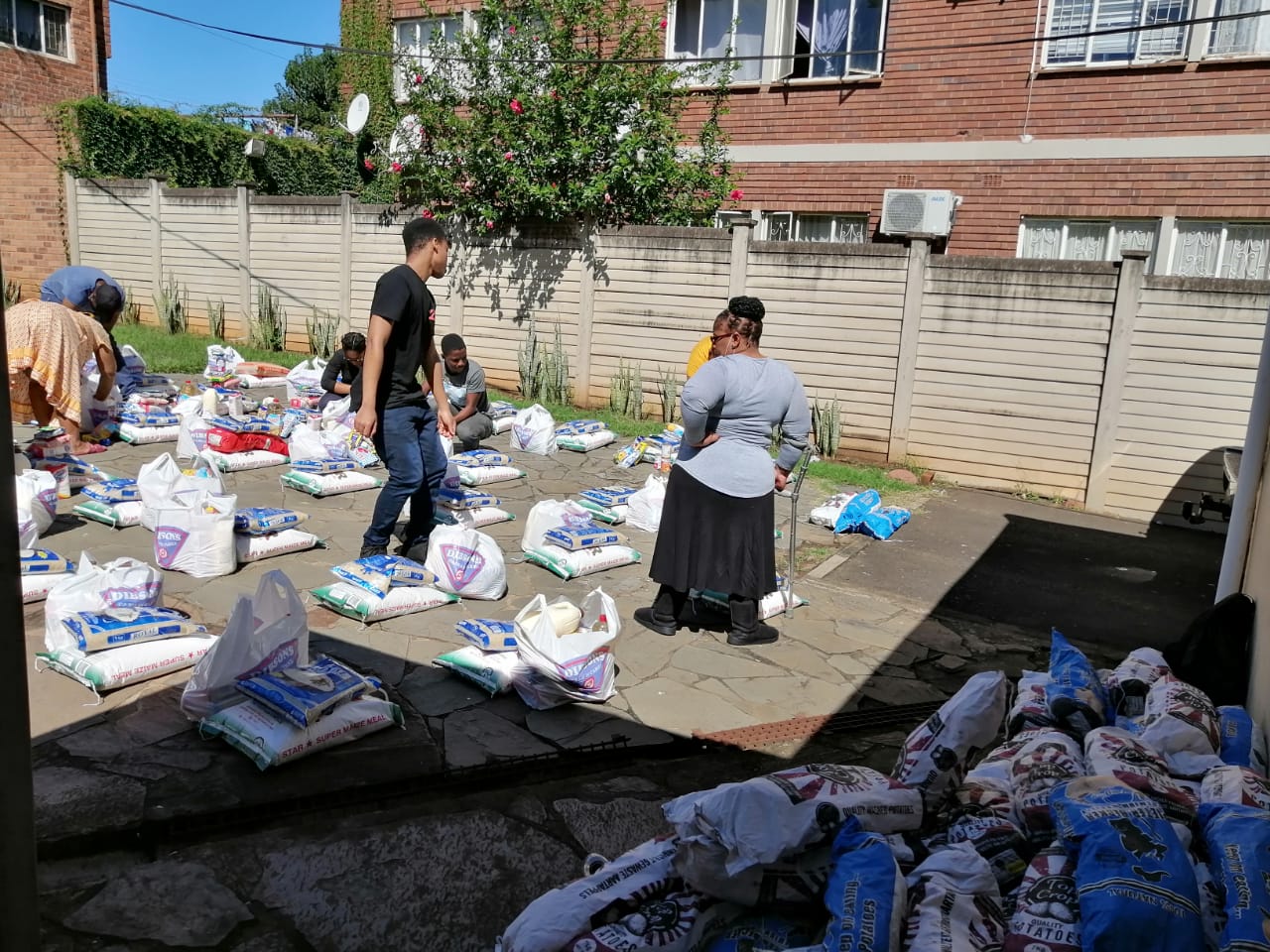
PACSA’s food drive in partnership with CREATE. Photos provided by Rise Up Leader Nqabakazi Mathe.
Rethabile Mosese
Acting Executive Director, Lawyers Against Abuse
Rise Up Leader since 2019
“We know that gender-based violence cases increase in times of chronic stress and disruption. Similar lockdowns around the world have resulted in a rise in domestic violence. For some of the womxn that we serve, the outside world is often safer than their own homes. At its core, abuse is about power and control. When victims/survivors are forced to stay in the home with their abusers they may be vulnerable to further abuse.”
Nkosikhona Welcome Mpungose
Executive Director, Youth Inter-Active
Rise Up Leader since 2020
“We had to adopt new ways of working in the communities that we serve and we had to join a number of Zoom meetings to stay informed and alert on new developments related to COVID-19. We are playing connector roles in communities. We are also going on community radio stations and using social media to share new information and educate our people on lockdown regulations.
“I have seen an amazing response from community members when we educate them; they welcome us, protect us, offer us water, and escort us to the next zone. I have never experienced this in my community development work this far.”
For more information about Rise Up Leaders’ work please look out for the next blog on the Rise Up Leaders at the Frontlines series.


